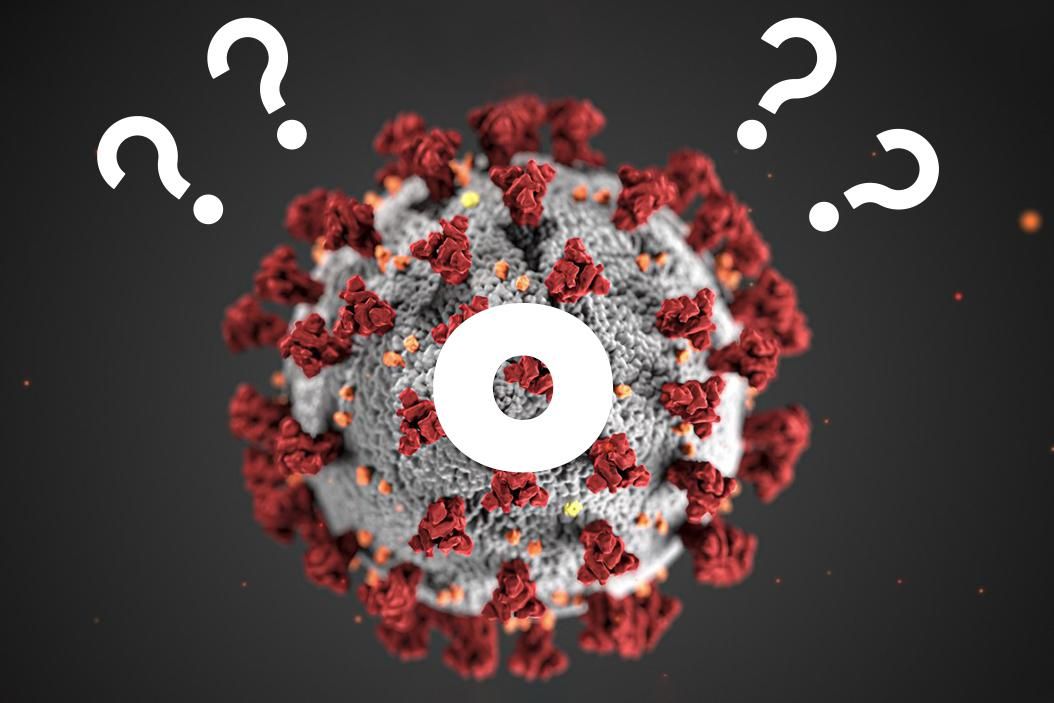November 30, 2021
With cases, and fears, of the new omicron variant spreading rapidly around the world, we sat down with Eurasia Group’s top public health expert, Scott Rosenstein, for a little perspective on what to worry about, what not to, and whether the pandemic will ever actually end.
Scott, we appear to be in the age of omicron now. On the scale of mild concern to apocalyptic jump-out-the-window panic, how worried should we really be?
Go over to the window, open it, and repeat the following: WE DON’T KNOW YET, BUT VIGILANCE IS WARRANTED. The current signals, which are still early and vague, suggest this variant may be highly transmissable, and that it has mutations that could potentially reduce – but not eliminate – the protection offered by current vaccines. In principle that means we have a variant that could cause a spike in cases and add to healthcare strains in places that thought the worst was behind them.
But don’t forget that the delta variant is still formidable – other variants have come and gone over the last year, unable to out-compete it. That still could happen here, for virological or immunological reasons we don’t yet know. So, the standard public health advice still applies: try to strike a balance between panic and complacency.
Talk a little more about delta. Are we better positioned to deal with omicron than we were when delta first showed up?
This time around it feels like we’re in a better position to understand and manage the threat, in part because Botswana and South Africa have an excellent, proactive genomic surveillance infrastructure that was built up in response to HIV/AIDS, and also because we have gleaned a lot of knowledge from previous variants. Add better treatment, prevalent rapid tests, and much higher vaccination rates, and there are a lot of reasons we aren’t going back to square one because of omicron.
Ok, but it feels like there’s a caveat coming here...
Well, on the other side of the equation is pandemic fatigue, worsening political polarization about the pandemic, and an information environment dominated by some of the dumbest takes imaginable (I’m looking at you, Covid immunity parties). So in addition to possibly more formidable mutations, there are still plenty of obstacles to a sensible, society-wide response.
Looking ahead, are we going to be trapped in an endless Groundhog's Day of new variants? Is there ever really going to be a "post-COVID" world?
I know this is unsatisfying, but yes and no. This virus is going to be with us for the foreseeable future and new variants are inevitable. But repeated exposure to this virus, through vaccination and/or infection, will mean that most people will be at considerably lower risk as time goes on. When exactly? Unclear. All of the herd immunity hot takes from 2020 have proven woefully inaccurate, so speculating with any specificity is probably a fool’s errand.
But many people have already transitioned to “living with the virus” in a kind of “pre-post-Covid” world. For communities, the main question remains: when will this virus stop wreaking havoc on healthcare systems and causing disastrous spikes in mortality? We’re clearly not there yet. And we aren’t going to simply wake up one day and be there. The most likely scenario is that we gradually transition away from an emergency to a long-term disease management posture, with most of us living with the virus most of the time, occasionally having to adjust our behavior during spikes (i.e. boosters, masks, rapid testing, etc) while recognizing the threat to more vulnerable populations.
Anything else that you think is important about this story that isn’t being covered properly?
Public health policy is about tradeoffs. There is rarely a purely good option on the table, it’s almost always a question of making the least bad choice in a highly uncertain and fluid information environment. Omicron is a perfect example of this. We will learn more in the coming weeks. As we do, we’ll need to figure out the best approach to vaccination, travel, indoor congregation, etc., while recognizing that all of these decisions will have some adverse outcomes.
Societies will need to have difficult conversations about tradeoffs, whether they like it or not. Communities and leaders who recognize the challenges of a complex and uncertain environment will do best: they’ll have the fewest number of people either jumping out the window in panic, or otherwise listening to their uncle’s 5G shaman on 48-Chan telling them that snorting bath salts is actually the best COVID protection.
Again, it’s about tradeoffs.
Ok, noted on the bath salts, thanks Scott.Scott Rosenstein is Special Advisor at Eurasia Group on global health.
More For You
Global conflict was at a record high in 2025, will 2026 be more peaceful? Ian Bremmer talks with CNN’s Clarissa Ward and Comfort Ero of the International Crisis Group on the GZERO World Podcast.
Most Popular
Think you know what's going on around the world? Here's your chance to prove it.
Indian Prime Minister Narendra Modi isn’t necessarily known as the greatest friend of Muslim people, yet his own government is now seeking to build bridges with Afghanistan’s Islamist leaders, the Taliban.
French President Emmanuel Macron, German Chancellor Friedrich Merz, Ukrainian President Volodymyr Zelenskiy, U.S. Special Envoy Steve Witkoff and businessman Jared Kushner, along with NATO Secretary-General Mark Rutte and otherEuropean leaders, pose for a group photo at the Chancellery in Berlin, Germany, December 15, 2025.
Kay Nietfeld/Pool via REUTERS
The European Union just pulled off something that, a year ago, seemed politically impossible: it froze $247 billion in Russian central bank assets indefinitely, stripping the Kremlin of one of its most reliable pressure points.
© 2025 GZERO Media. All Rights Reserved | A Eurasia Group media company.
